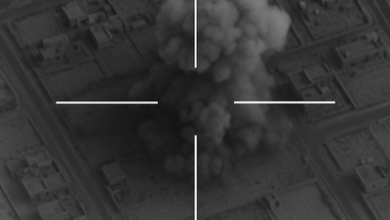
In a significant development amidst the ongoing conflict between Israel and Hamas, Egypt has issued a strong condemnation of Hamas’s recent rocket attacks on Israel. This condemnation comes at a critical time, as tensions between Israel and the Gaza-based militant group continue to escalate, leading to widespread concern over the potential for further violence and regional instability. This article explores the implications of Egypt’s condemnation, the context of the Israel-Hamas conflict, and the broader geopolitical ramifications.
Egypt’s Condemnation: A Firm Stance
Egypt’s condemnation of Hamas’s rocket attacks marks a notable shift in the regional dynamics, underscoring Cairo’s growing concern over the escalation of violence and its potential impact on regional stability. Egypt, which has traditionally played a mediating role in the Israel-Hamas conflict, has now taken a firm stance against the militant group’s actions.
Key Points of the Condemnation
Call for Restraint: Egypt has called for an immediate cessation of rocket attacks and urged Hamas to exercise restraint to avoid further escalation.
Support for Peace Efforts: The statement emphasized Egypt’s commitment to supporting peace efforts and facilitating dialogue between the conflicting parties.
Concern for Civilian Safety: Egypt expressed concern over the safety of civilians on both sides of the conflict, highlighting the humanitarian impact of the ongoing violence.
Context: The Israel-Hamas Conflict
The Israel-Hamas conflict has been marked by cycles of violence and ceasefires, with both sides engaging in hostilities that have resulted in significant casualties and damage. The latest escalation began with a series of rocket attacks launched by Hamas into Israeli territory, prompting retaliatory airstrikes by the Israel Defense Forces (IDF).
Recent Developments
Rocket Attacks: Hamas has launched numerous rockets targeting civilian areas in southern and central Israel, causing injuries and damage to property.
Israeli Retaliation: In response, Israel has conducted targeted airstrikes against Hamas infrastructure in Gaza, including rocket launch sites and command centers.
Humanitarian Crisis: The ongoing conflict has exacerbated the humanitarian crisis in Gaza, where civilians face severe shortages of essential supplies and services.
Egypt’s Role in the Conflict
Egypt has historically played a crucial role as a mediator in the Israel-Hamas conflict, leveraging its diplomatic ties with both sides to broker ceasefires and facilitate dialogue. Cairo’s strategic location and political influence make it a key player in efforts to maintain stability in the region.
Mediating Peace Efforts
Brokered Ceasefires: Egypt has successfully brokered several ceasefires between Israel and Hamas, helping to temporarily halt hostilities and provide relief to affected civilians.
Facilitating Dialogue: Egypt continues to facilitate dialogue between Israeli and Palestinian representatives, aiming to address the underlying issues and promote a lasting peace.
Humanitarian Aid: Egypt has also provided humanitarian aid to Gaza, supporting efforts to alleviate the suffering of civilians affected by the conflict.
Broader Geopolitical Implications
Egypt’s condemnation of Hamas’s rocket attacks has broader implications for regional geopolitics, highlighting the complex dynamics at play in the Middle East.
Key Geopolitical Considerations
Regional Stability: The conflict has the potential to destabilize the region, with neighboring countries closely monitoring the situation and preparing for possible spillover effects.
International Relations: Egypt’s stance reflects its broader foreign policy goals, including maintaining strong ties with Western allies and positioning itself as a key mediator in Middle Eastern conflicts.
Impact on Peace Process: The ongoing violence complicates efforts to revive the Israeli-Palestinian peace process, with Egypt’s condemnation signaling a need for renewed focus on diplomatic solutions.
The Path Forward: Seeking Resolution Amidst Conflict
While the immediate focus is on addressing the current escalation, there is a pressing need for long-term solutions that address the root causes of the Israel-Hamas conflict and promote sustainable peace.
Key Steps Toward Peace
Immediate Ceasefire: Achieving an immediate and lasting ceasefire is crucial to halt the violence and prevent further casualties and destruction.
Renewed Dialogue: Engaging in sustained dialogue between Israeli and Palestinian representatives is essential to address the underlying issues and seek a political solution to the conflict.
International Support: The involvement of international actors, including the United Nations and major world powers, can help facilitate negotiations and support peacebuilding efforts.
Conclusion
Egypt’s condemnation of Hamas’s rocket attacks marks a significant development in the ongoing Israel-Hamas conflict, reflecting the urgent need for de-escalation and a renewed commitment to peace. As tensions continue to rise, the role of regional and international actors in mediating the conflict and supporting humanitarian efforts becomes increasingly important. Moving forward, a focus on diplomacy, dialogue, and long-term solutions is essential to achieving a peaceful and stable future for the region.




